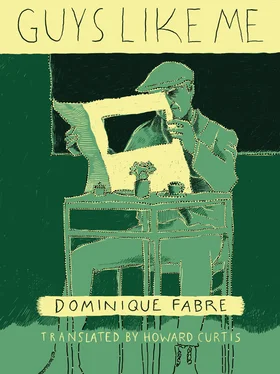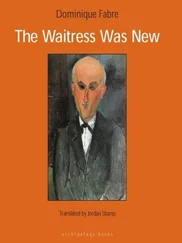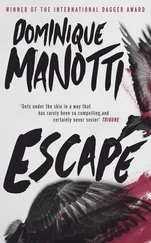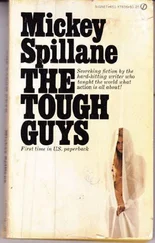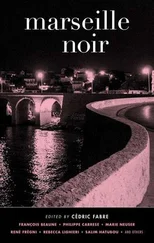
We did hear from him, the following month. He’d sent Marco a letter. He was pleased to be living in Marseilles. What beat everything was that he’d immediately found a job, luck often waits until the last moment. He was taking care of a large house with a garden and swimming pool in a ritzy neighborhood. It just goes to show, it must have been in his genes, taking care of a house. He had quite a lot to do, which he liked. The owners were German, but that was another story! He was living in a studio apartment away from the main house, and he took care of the maintenance, the gardening, he was starting to feel more self-confident. And then there was the sea and the sun. He went to see his mother once a week, she’d aged a lot, they’d diagnosed the onset of Alzheimer’s. He should have gone earlier. His handwriting was clear and well rounded, as if he hadn’t yet reached our age but had stayed the way he’d been before, in high school, when we were twelve or thirteen. When I went back to his last address on my scooter, the family across the courtyard had gone. The mailboxes had been torn off and someone had dumped hundreds of leaflets from a nearby supermarket. The entrance hall smelled of urine. That’s it, I told myself, it’s over. I did what I’d wanted to do the time before, or even a long time earlier to tell the truth. I took several photos with my little digital camera and returned home. In the evening, I went to Brochant. Marie and I went for a walk, as far as Place de Clichy, she wanted to see the new titles in the window of the bookstore. This time I saw two guys turn to look at her, and I think she noticed, so that was fine.
When we’re together, we never talk about the future. I try not to talk too much about my past either, about all those years spent waiting for her, but well, you know guys like me. The doctors seem pleased with themselves anyway. We invited Marco and Aïcha to Brochant, I did the cooking, we had a good laugh, Marie was sick as a dog again the next day, but it isn’t serious, she said. I took some photos too. I e-mailed them to Ben, saying look, it’ll soon be September in Paris, isn’t life beautiful? I wasn’t completely drunk when I wrote that. Aïcha talked for a long time with Marie about the organization where she worked, they might be able to do some things together. Later, Marco offered me a cigar. We went out on the little balcony because it stank. We talked a little about him. Nothing to report, he said. He had a big smile. We were both happy that evening. We talked about the others we’d lost contact with. We both agreed that when it came down to it, everyone was alone, after a certain number of years. And then we smoked without saying anything, above the noises of the boulevard. I continued with my rides.
I sent Jean photos of our school, lots of places where we’d been, buildings, cafés. I’d gone back to the Bar des Trois Communes, at the end of the bridge on the border of Asnières. The plaque of the two little girls killed by a reckless driver, with the bunches of flowers below. The black cars with front-wheel drive in the garage opposite, and the slightly ridiculous limousines, fluorescent pink and petroleum blue, in an obscure corner of the suburbs, near the Seine. The demolished apartment block where I’d lived as a small child, which was probably the one that meant the most to Marco, because we’d both grown up there. He gave me back the photos and said: it’s funny, I couldn’t do that, it really tears me up. Doesn’t it affect you? I realized it did, thinking about it. But it did me good, and besides, doing this, I wasn’t idle when I wasn’t at work, waiting for Marie to recover completely. We came back with them. When they left, Marie asked me will you stay a while? We cleared the table and she started talking, she liked both of them, they seemed nice. Life could be normal every now and again. One last session to go, at Beaujon. She was scared every time. She was a little more scared, and she was expecting the worst. Or else, she’d completely forgotten and it was even harder to go back there. She didn’t want to go back there, this evening. She didn’t want to go to bed. She didn’t want to. I said to Marie, I have an idea, are you coming? Let’s go for a ride. I handed her a helmet, it was two o’clock in the morning. She’d ridden a motorbike before and she laughed because I’m not very expert. We took the Maréchaux toward Porte Maillot, it’s the Way of the Cross for guys like me, and then we went to look at the Seine. We both love it. We were almost alone on the Pont Bineau. The reflections on the water were dark, almost proud, it seemed to be watching us, it was as if we could count on it and it would never abandon us. We parked on the sidewalk of the Pont Bineau. Marie held herself up against me, without saying anything, we turned north-east, toward Saint-Denis, it was funny how my whole life had been spent around that area, more or less. We looked in the direction of Beaujon too. It was a little cold on the bridge, so we went back. We couldn’t keep from laughing. The following day, she got her bag ready at the last moment, and we went hand in hand to that horrible hospital, for the very last time, I swear. Oh, yes.

I went on with my life. Work, Marie in the evening, the photographs, the calls to Marco and my son. He was going to spend a few days in Jussieu and we decided we’d try to see each other. He was still just as badly dressed when I went to wait for him that evening at the bus stop near Porte d’Orléans. We had a beer in a brasserie, he looked at my scooter and said, you certainly took your time! Anaïs sent her love.
“How is she?”
“Well … not too bad. It isn’t always easy, you know.”
He was going to sleep at his mother’s tonight.
“I brought the second helmet. Would you like me to give you a ride there?”
“Could you?”
“Sure,” I said to Benjamin, “why not?”
He had a backpack and a small bag, I managed to wedge the bag between my legs, and he carried the backpack on his shoulders. I’ll give you directions, OK? We headed north. We passed through the Maréchaux, it was easy to ride in the bus lane, so why hesitate? After a while, he tapped me on the shoulder and we turned right, she was living in Les Lilas now, she had an apartment there. We rode easily, at Porte des Lilas there was a van full of cops and I was sure they were going to arrest us, but they didn’t. We drove up toward the park next to the water tower. It was another world, where Ben’s mother lived. I parked on her street, not right outside the building, I tried not to think about all those trains I’d waited for at the Gare de Lyon and the Gare Saint-Lazare, and I think I managed.
“Shit,” Benjamin said, “you certainly wouldn’t win any races!”
I handed him his bag. He put it down on the sidewalk. I had my camera in my jacket pocket and he was standing in front of a large, more or less green willow, I felt like taking a photo. Really, he said, you want a picture of me? A guy was coming toward us. A tall black guy with headphones over his ears and huge sneakers.
“Excuse me,” my son said, “could you take a photo of us?”
The guy shrugged and made a face like an actor when he heard what Ben was saying, without the headphones. We both struck a pose in front of the big willow on that little street in Les Lilas next to the water tower and he said are you ready, is your Dad going to smile? Good, how about another one? He seemed to be having a good time, taking our photo. We said thanks, no worries, he said, and he patted his chest next to his heart, the way people used to do, forty years ago, but it had gone out of fashion in the suburbs and then a few years ago it came back, so there you are. He strode off. We looked at the three photos he’d taken, they aren’t bad, are they, I’ll send them to you.
Читать дальше
